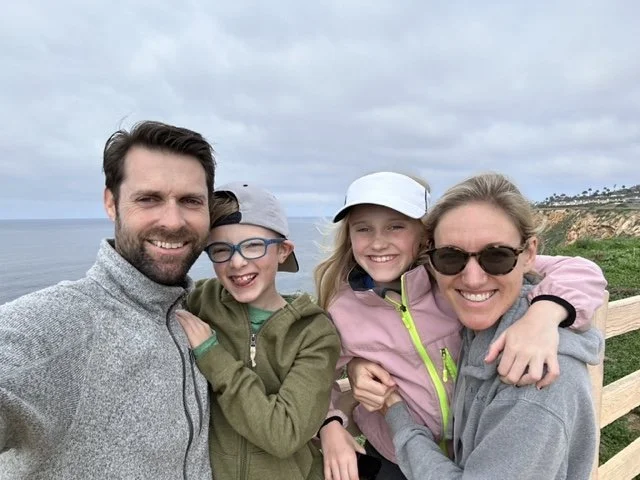Esther Perel, renowned psychotherapist and relationship expert, beautifully encapsulates the essence of intimacy with her profound statement, "Into-Me-See." These three simple words hold immense depth, inviting us to explore the intricacies of connection, vulnerability, and the power of truly being seen by another. Let us delve into the meaning behind "Into-Me-See" and its transformative journey.
Read MoreOn the surface, perfectionism might seem like a good thing. After all, doesn’t everyone want to be the best version of themself? But the problem with perfection is that it's an impossible - and counterproductive - goal. There's no such thing as perfect, no matter how hard we try to be it. And the more we try, the more we set ourselves up for disappointment and frustration.
Read MoreIntimacy is a multifaceted and deeply personal experience that enriches our relationships and fosters profound connections with others. While many people tend to associate intimacy solely with physical closeness, seven distinct layers, from the physical to the transcendent, contribute to a truly intimate connection.
Read MoreToday we’re talking about something that might sound a tad unromantic at first, but bear with me—it's an absolute game-changer for your relationships.
Boundaries! Yes, you heard that right. Those magical lines we draw that can make our connections even more fulfilling. Intrigued? Let's dive right in!
Read MoreIn a society that often shies away from discussing self-pleasure openly, it’s essential to recognize and celebrate the art of practicing self-pleasure. In this blog post, we will explore the art of self-pleasure and provide insights into how to enhance this personal journey.
Read MoreOne of the most important factors in having a successful therapy experience is working with a therapist who is the “right fit”. In fact, the data shows that the most significant indicator that therapy will be successful is when you feel a safe alliance with your therapist - basically, when you feel like they “get” you and truly care about you…
Read MoreDiet culture is everywhere - it’s in our advertising, at our medical offices, in our clothing, in our grocery stores, and over time with repeated exposure, in ourselves. But what is diet culture? The Butterfly Foundation defines diet culture as a “set of ever-changing myths about food and bodies, promoting the idea that one’s body weight automatically equals health and that foods can be simplistically categorized as ‘good’ and ‘bad’…
Read MoreAs a supervisor of mental health interns, I have the unique privilege of guiding and nurturing the growth of young professionals in the field. This experience is one of great fulfillment, as I am able to witness the unfolding of their potential as mental health practitioners. In the spirit of Carl Jung, I see the supervision of interns as a process of individuation…
Read MoreMeaning is not an object like a pair of shoes. You can’t point to it and say, there it is, that is meaning. But, like a pair of shoes, each person puts on and takes off the meanings that fit them best. Meaning, quite naturally, intersects with values, with purpose, with orientation in the world. If a thing isn’t meaningful to me, then I don’t see much value in it, I don’t find any purpose in engaging with it, and it doesn’t contribute to my orientation. It blends in with so many other things, and I find myself indifferent.
Read MoreI’m delighted to share that our new Self Space Eastside location is open and ready to welcome clients in person! This is a dream come true for us that has been years in the making, and we are grateful. As we put the finishing touches on the offices - adjusting plants and testing light bulbs - I envision the thousands of precious hours that will be spent in these rooms. Listening. Connecting. Opening up. Growing down. Breaking apart and building something new. We are grateful for each person who comes through the door, and honored to be front-row witnesses to so many incredible lives.
Read MoreDo you have a graveyard of past failed self-help books ? Different approaches for how to perfect your mental health, your body, your personality, your relationships, and to make life easy and always happy? It all starts with that rush of excitement and hope from finding something new that makes big promises. Then you feel energized while strictly following its exact recommendations, only to have everything crumble again a few days or weeks later. Welcome to the compulsive self-help crash and burn cycle that many of us know so well.
Read MorePsychotherapy, put plainly, is a conversation that is supposed to assist someone in making a significant change in their life. Psychotherapy thus rests on the implicit claim that speaking is a necessary or important part of how change happens in our lives. In some ways this is obvious. A situation in a restaurant cannot proceed unless I can vocalize my order, or I cannot complete a work project without similarly communicating. At other times speech is utterly powerless.
Read MoreThe fall season, with dynamic shifts in light, temperature, and color, is a natural time to reflect on the process of change. At this time of year, we’re surrounded by messages encouraging us to “embrace change,” often accompanied by images of trees with leaves shining in gorgeous reds, oranges and yellows, or children running and laughing through vibrant heaps of fallen leaves. But trees don’t turn bright colors overnight. And changes in our lives are seldom simple or spectacular, and accepting, let alone embracing, them can be daunting. We may feel discouraged to acknowledge we feel conflicted or not ready to celebrate the transition from summer to fall or the life changes that this season can be seen to symbolize.
Read MoreOften, during my first or second session with a client, this question comes up. Can we get this problem sorted out in a few weeks, or will I have to be in therapy forever? For someone who hasn’t been to therapy before, it makes tremendous sense to search for a way to orient themselves within the process. With the caveat that every client is different, every therapist approaches this work differently, and every situation is unique, here is a general therapeutic timeline that I’ve seen occur with many of my clients over the past ten years.
Read MoreThe therapeutic quality of gardening is universal. Before anyone starts thinking, "But wait! I don't have a green thumb!", I want to challenge us to consider that gardening doesn't require any green digits to take part in or to relish. Below I will explore several aspects of gardening that can be very therapeutic, whether you intend to grow prize-winning roses or gain appreciation for how a seed so small can turn into a tree so big.
Read MoreHuman life always needs some mixture of stability and change, familiarity and freshness. If life is overly structured it feels rigid and entrapping. If life lacks structure it can feel chaotic and overwhelming. Making healthy change, in therapy or in life, will generally involve some understanding of this tension between stability and change. I have often thought about healthy structure through the image of a trellis. Trellises are relatively rigid structures that allow a plant to develop in ways that wouldn’t otherwise be possible.
Read MoreThe day of my first training as an intern therapist, I had to dance through some serious energy and excitement before even thinking about learning a thing. It was the first of many appropriate but humorous contrasts of my internship experience. From dancing wildly in my workout clothes in my living room to settling into a cozy chair in a downtown office within a matter of hours, day one already necessitated making room for all parts of myself. Part of me was ready to dive into the work of a therapist, and another part needed to spend some quality time with Lizzo to be grounded. To be an intern therapist is to feel and lean into every part of becoming, arriving, and growing all at the same time.
Read MoreHave you ever noticed how expansive a child’s sense of wonder is? You might spot a young child in a park awestruck by a ladybug. They study it with such presence, interest, and delight. They have an openness to discovering without any preconceived notions. This kind of presence makes curiosity, and its gifts, possible. For many adults, it’s difficult to relate to the openness of this child. Some might even relate more to the bug, feeling that there are emotions, reactions, or parts within themselves that feel socially undesirable and would garner judgment from the outside world. Our first reaction might be to shoo these parts of ourselves away rather than to get to know them. Just as the bug is an essential part of our ecosystem, so too are these emotions, reactions, and parts an essential part of our own internal system.
Read MoreHuman experience is entirely bound up with our sense of time. Time is so ubiquitous—the unquestioned background of everything—that we don’t often talk explicitly about its importance. There is evidence, however, that distress is notably bound up with distorted experiences of time. Paying attention to time, however, is hard because the word ‘time’ has many different meanings. We are most familiar with measured time or clock time. There is also something that could be called body time. Attending to our experience of time is easier if we distinguish between these two types of time.
Read MoreAlmost everyone I have worked with has been told, often by a health professional, that they ought to “try mindfulness”. And this is unsurprising, given that in the last 20 years there has been an explosion of mindfulness research, newspaper articles, books, and blogs (!). But, despite well-meaning health professionals and therapists, the context with which mindfulness is introduced really matters and can have dramatic, unintended consequences. Once mindfulness is set up as a tool to get from A (suffering) to B (less suffering), any failure to reach the goal feeds self-judgment and self-criticism. But there is no way to be aware of your experience “well” or “badly”. There’s just you in the middle of your experience and your awareness of your experience. That’s it.
Read More




















